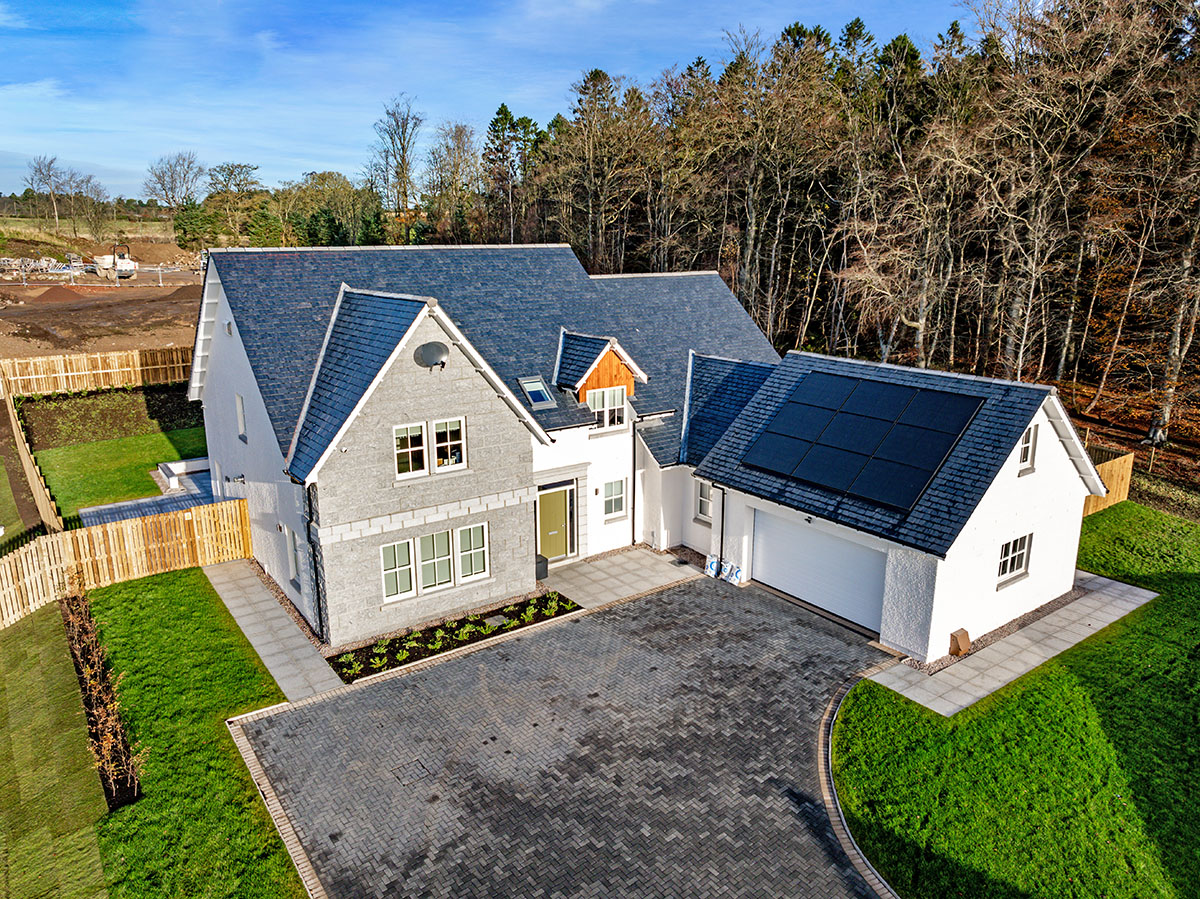
The UK housebuilding sector is under pressure like never before. Demand for homes continues to rise, while the availability of skilled labour—particularly in England—is falling. At the same time, developers are being asked to meet increasingly ambitious net zero targets, build more efficiently, and reduce environmental impact across the board.
These challenges aren’t hypothetical—they’re already shaping policy and procurement. From the government’s push to use more domestically sourced timber to the Labour Party’s public endorsement of timber frame homes, England is on the brink of a significant shift in how homes are built.
At Deeside Timberframe, we believe that shift can’t come soon enough.
While often grouped with emerging technologies under the MMC umbrella, timber frame is anything but new. It’s a mature, proven method of offsite construction used extensively in Scotland and increasingly across the UK. What makes it “modern” is not the material—but the manufacturing approach.
Factory-built, precision-engineered, and delivered ready for rapid on-site assembly, timber frame construction directly addresses many of the bottlenecks in England’s housing system:
- Speed of build: With timber frame, houses can go up in a fraction of the time compared to brick and block, reducing on-site delays and enabling faster sales or occupancy.
- Labour efficiency: Reduced reliance on wet trades means developers can keep building even as the pool of bricklayers and traditional site workers continues to shrink.
- Carbon performance: Timber stores carbon rather than emitting it—making it one of the only mainstream materials that actively supports net zero goals.
- Cost predictability: A controlled offsite process reduces weather-related delays and unexpected site costs.
Aligning with England’s Policy and Market Realities
England faces unique pressures that make timber frame especially relevant:
- Housing targets: The government’s target to build 300,000 new homes per year cannot be met with traditional methods alone.
- Planning reform: Proposed changes aim to streamline approvals for developments that meet sustainability and design criteria—something offsite timber systems are well-positioned to deliver.
- Energy efficiency: With new homes expected to meet Future Homes Standard requirements by 2025, developers need construction systems that deliver high thermal performance as standard.
Timber frame offers an ideal solution across all of these fronts—and it’s already being adopted by major housebuilders.
At Deeside Timberframe, we’ve been supporting housebuilders across the UK with scalable, low-carbon solutions for more than 35 years. We understand the constraints developers face—and we know how to design, manufacture and deliver timber frame systems that reduce build times, cut carbon, and support long-term growth.
For more information on how Deeside Timberframe can support your next project with sustainable timber frame solutions, please contact info@deesidetimberframe.com or call 01569 767 123.